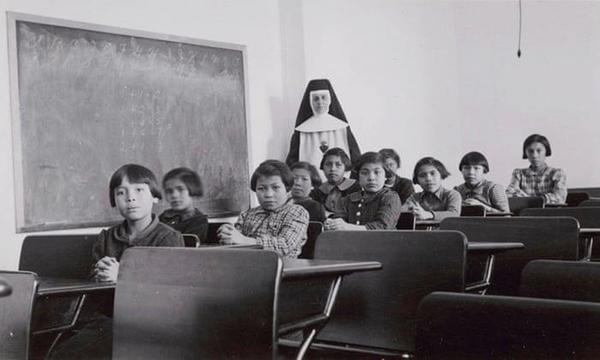
By: Lateisha Ugwuegbula
Indigenous communities in Canada have historically been systemically discriminated against, and the effects are still very visible today. The Truth and Reconciliation Commission states that its goal is to “redress the legacy of residential schools and advance reconciliation”. Residential schools ripped children from their communities, families, and cultures and forced them to adopt Western notions of education, culture, and language. Among numerous severe consequences, one of the observable legacies of residential schools are the educational inequalities that exist in many facets between Indigenous and non-Indigenous students. These gaps in education have consequences that translate into socio-economic gaps. Inclusive and quality education for Indigenous peoples is imperative to Canadas commitment to truth and reconciliation.
Linda Tuhiwai Smith, author of Decolonizing Methodologies: Research and Indigenous Peoples, says it best, research, knowledge, and education more broadly are not without culture. The educational system in Canada is one of settler colonialism and Western ideologies and assumptions. The Truth and Reconciliation Commission report is Canada answering to the call for more Indigenized and inclusive education.
The Calls to Action section of the report address this issue and calls for various measures to be taken to remedy the educational gap that exists. Some of these calls include the elimination of the discrepancy in federal education funding, joint strategies to address education and employment gaps between Indigenous and non-Indigenous students, the drafting of new educational legislation with full participation and consultation of Indigenous peoples, development of culturally appropriate curriculum, and protecting the right of Indigenous languages and developing courses for school credits.
Education is one of the major contributing factors to environmental, economic, and social development, especially for marginalized and disadvantaged individuals and communities. So how can Canada implement this call to action and close the gap in education? On the Government of Canadas Crown-Indigenous Relations and Northern Affairs website they list various ways that Canada is currently responding to the call to action regarding education for Indigenous students. The Canadian government is creating and implementing strategies to increase the education budget for Indigenous students interested in post-secondary education, renewing and expanding the Aboriginal Skills and Employment Training Strategy, investing in primary and secondary education on reserve, implementing inclusive curriculum in schools, providing transparency in yearly reports on education funding gaps, and co-developing education policy with Indigenous peoples. The Truth and Reconciliation Commissions Calls to Action are a government backed public commitment to address the gross injustices that Indigenous peoples face in Canada. There is a long way to go, but this is a start.
